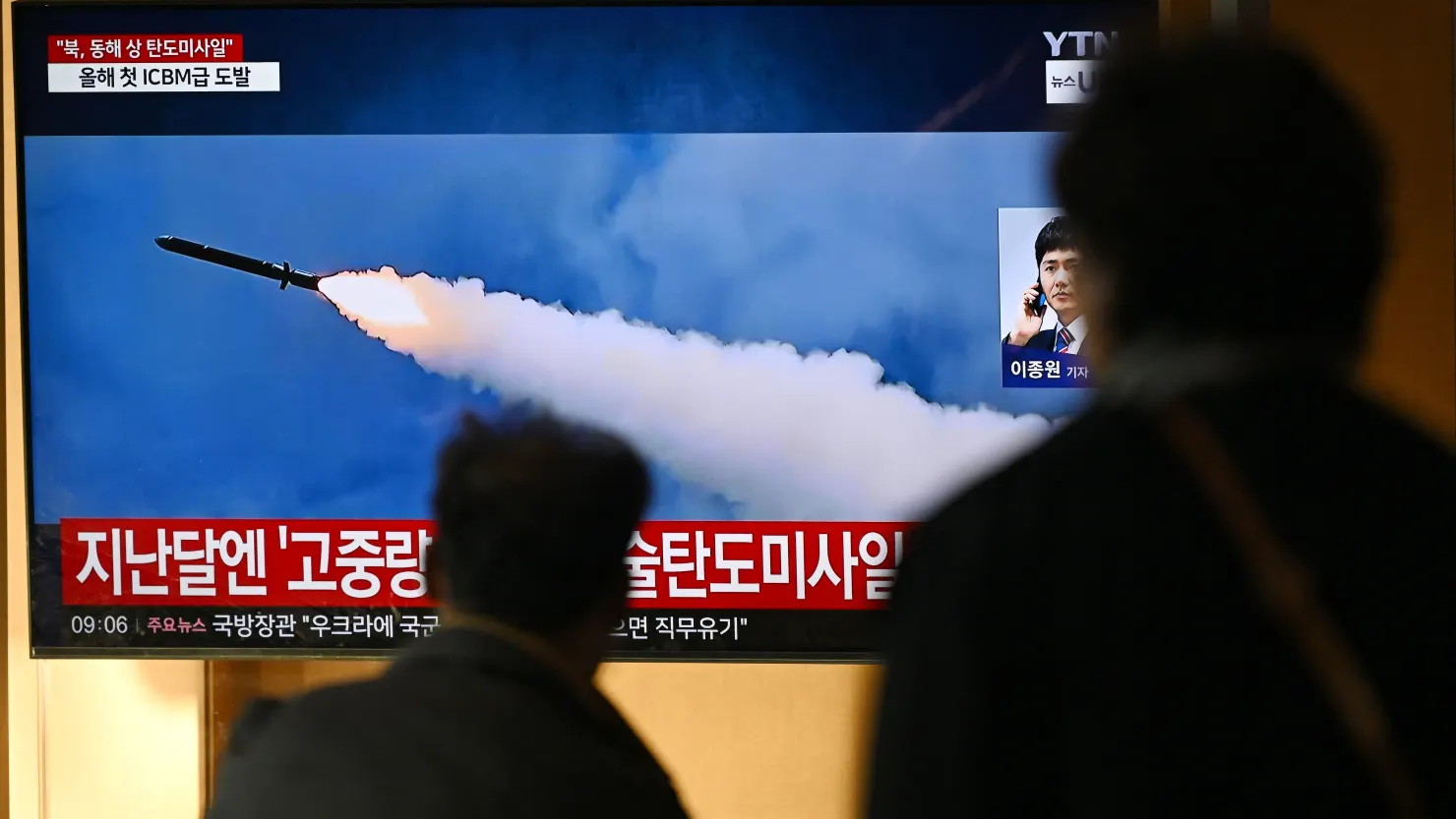North Korea conducted a significant intercontinental ballistic missile (ICBM) test on Thursday, marking its first such launch in nearly a year and escalating tensions ahead of the U.S. election. North Korean leader Kim Jong Un personally ordered the test, calling it a “necessary military action” to counter perceived threats to North Korea’s security, according to its Defense Ministry.
The missile, identified by the United States, South Korea, and Japan as an ICBM, is reportedly capable of reaching the U.S. mainland, adding to the mounting pressure as North Korea continues to develop advanced missile technology. Kim reaffirmed North Korea’s unwavering commitment to bolstering its nuclear arsenal, stating, “The DPRK will never change its line of strengthening its nuclear forces,” according to state media.
South Korea’s Joint Chiefs of Staff suggested that North Korea’s latest test might involve a new solid-fuel missile—a technology that enables quicker launches and greater mobility compared to liquid-fueled systems. The missile was launched on a high angle, likely to avoid flying over neighboring countries, with Japan’s Defense Ministry reporting a flight duration of 86 minutes and a peak altitude exceeding 7,000 kilometers (4,350 miles), surpassing previous test records.
U.S. National Security Council spokesperson Sean Savett condemned the launch as a “flagrant violation” of U.N. Security Council resolutions, warning that it needlessly heightens tensions and destabilizes regional security. South Korea and Japan joined the U.S. in denouncing the launch, expressing shared concern over the international security risks posed by North Korea’s ongoing weapons tests. Both countries confirmed they are working closely with the U.S. on further joint military exercises, including trilateral drills involving Japan.
The missile test aligns with rising global concerns over North Korea’s alleged support for Russia’s war in Ukraine. Defense Secretary Lloyd Austin reported that North Korean troops in Russian uniforms have been observed moving toward Ukraine, likely to support Russian forces. South Korean intelligence estimates that North Korea has already sent over 11,000 troops to Russia, with 3,000 reportedly stationed near combat zones in western Russia.
These moves signal an expansion of North Korea’s military cooperation with Moscow. Experts suggest Kim Jong Un could be seeking Russian high-tech support to enhance North Korea’s missile and surveillance systems, in exchange for deploying North Korean troops and supplying artillery and other military equipment to Russia.
As North Korea bolsters its military alliances and conducts high-stakes missile tests, global scrutiny grows. South Korean President Yoon Suk Yeol has warned that his government “won’t sit idle” in the face of these developments, and he has indicated that South Korea might consider supplying Ukraine with weapons.





